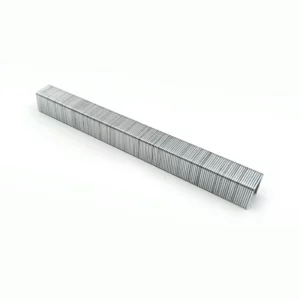When selecting materials for concrete coil nails in humid or corrosive environments, several important considerations should be made to ensure optimal performance and longevity:
- Corrosion Resistance: The primary consideration is selecting materials with high corrosion resistance properties, especially in humid or corrosive environments. Stainless steel, particularly grades like 304 or 316, is highly resistant to corrosion and is often the preferred choice for concrete coil nails in such conditions.
- Galvanized Coating: Another option is to use galvanized coatings on steel nails. Hot-dip galvanized or electroplated zinc coatings provide an additional layer of protection against corrosion, extending the lifespan of the nails in humid or corrosive environments.
- Material Compatibility: Ensure that the selected material is compatible with concrete and other materials commonly used in construction. Compatibility issues can lead to galvanic corrosion, compromising the integrity of the fastening system.
- Exposure Conditions: Consider the specific exposure conditions in which the concrete coil nails will be used. Factors such as exposure to saltwater, chemicals, or industrial pollutants can accelerate corrosion. Choose materials that can withstand these conditions effectively.
- Environmental Regulations: Ensure compliance with environmental regulations and restrictions on the use of certain materials. For example, some regions have restrictions on the use of certain coatings or materials due to environmental concerns.
- Durability and Lifespan: Prioritize materials that offer durability and a long lifespan, even in harsh environmental conditions. Investing in high-quality materials may initially cost more but can result in significant savings over the long term by reducing maintenance and replacement costs.
- Testing and Certification: Verify that the selected materials meet relevant industry standards and certifications for corrosion resistance. concrete coil nails Look for products that have been tested and certified by reputable organizations to ensure their performance in humid or corrosive environments.
- Surface Treatment: Consider surface treatments or coatings that can enhance the corrosion resistance of the nails. For example, additional sealants or protective coatings can provide an extra layer of defense against moisture and corrosive agents.
- Maintenance Requirements: Evaluate the maintenance requirements associated with different materials. Choose materials that require minimal maintenance and upkeep to ensure long-term performance in humid or corrosive environments.
- Cost Considerations: Balance the cost of materials with their performance and longevity. While corrosion-resistant materials may have a higher upfront cost, they can provide significant savings in the long run by reducing the need for frequent replacements and maintenance.
By considering these factors when selecting materials for concrete coil nails in humid or corrosive environments, you can ensure that the fastening system remains durable, reliable, and resistant to corrosion over time.
